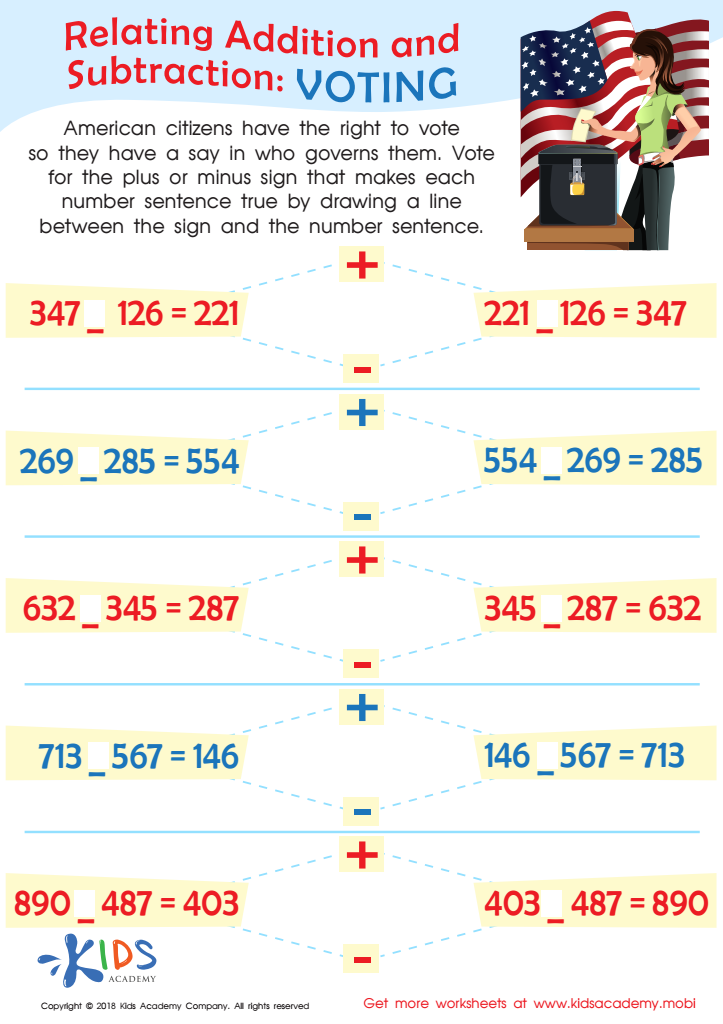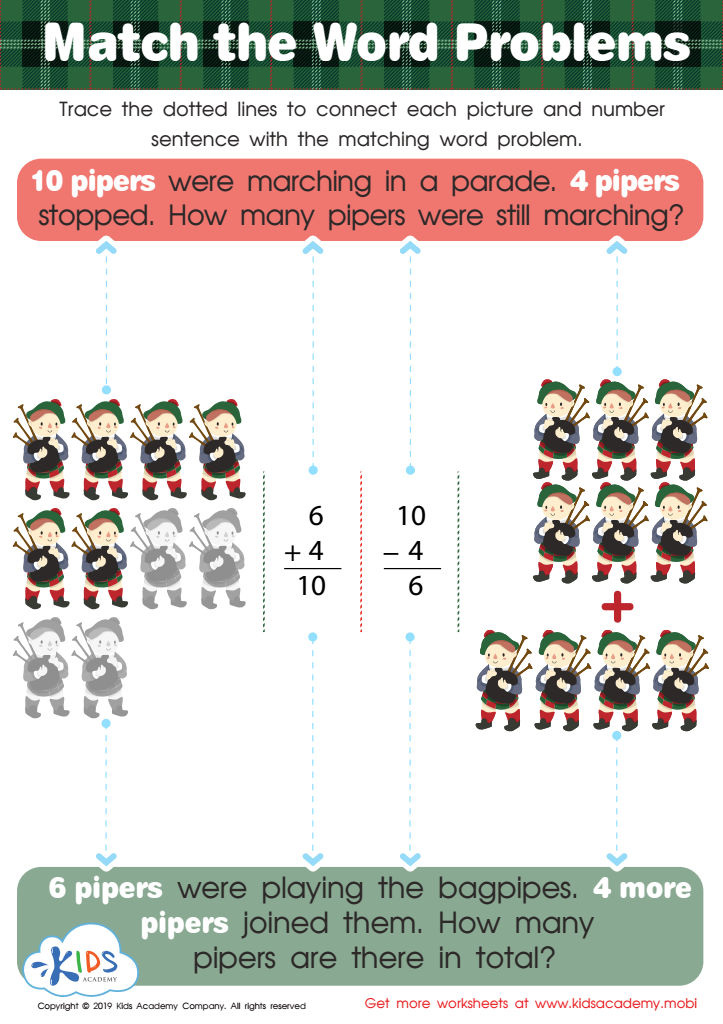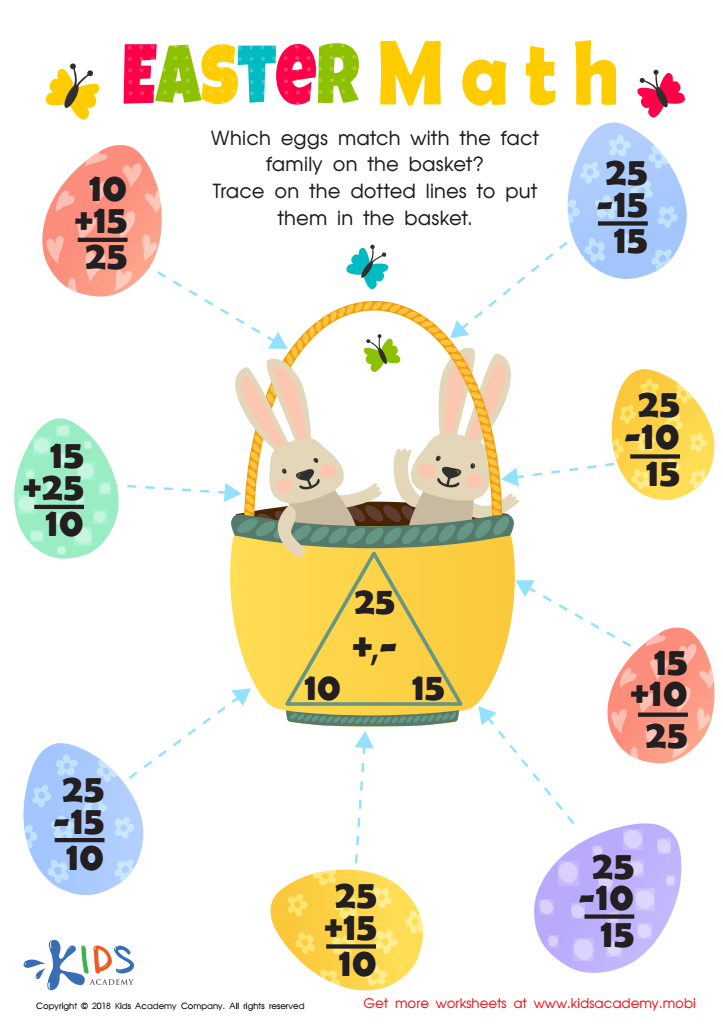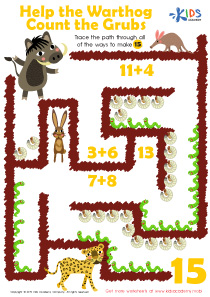Problem-Solving Skills Normal Subtraction Worksheets for Ages 6-8
3 filtered results
-
From - To
Enhance your child's math abilities with our Problem-Solving Skills Normal Subtraction Worksheets, designed specifically for ages 6-8. These engaging worksheets focus on developing critical thinking and problem-solving strategies through fun subtraction exercises. Tailored to meet educational standards, they provide children with a variety of scenarios that challenge their reasoning and math skills. By practicing with these worksheets, kids will gain confidence in their abilities while mastering subtraction concepts. Perfect for home learning or classroom use, our resources encourage independent thinking and make math enjoyable. Start your child's journey to becoming a confident problem solver today!


Voting Worksheet


Match the Word Problems Worksheet


Fact Families: Easter Math Worksheet
Problem-solving skills, particularly in the context of normal subtraction, are essential for children aged 6-8 as they lay the foundation for mathematical understanding and critical thinking. At this developmental stage, children are transitioning from basic counting to more complex mathematical concepts, where subtraction is a key element.
Understanding subtraction not only helps children with basic arithmetic but also encourages logical thinking and the ability to tackle real-life problems. When parents and teachers engage young learners in subtractive problem-solving, they cultivate an environment of inquiry and exploration. This nurtures a growth mindset, enabling children to view challenges as opportunities for learning rather than as obstacles.
Furthermore, subtraction is often related to everyday situations, such as comparing quantities or distributing items. By effectively mastering these problem-solving skills, children also enhance their numerical literacy, which is indispensable for academic success in later years.
Additionally, supporting problem-solving skills helps children develop confidence in their abilities. Feeling competent in mathematics fosters a positive attitude towards the subject, reducing anxiety and encouraging persistence when faced with challenges. Parents and teachers play a critical role in nurturing these skills, ultimately empowering the next generation to approach mathematical concepts with enthusiasm and strategy.
 Assign to My Students
Assign to My Students
















